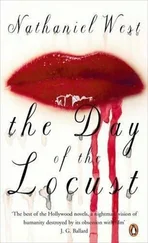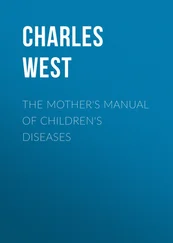By the time he discovered Wolf’s camp on the Beaver, Ned was convinced that the fugitive was no longer worried about being tailed. There were no efforts to hide his campsite or cover his tracks at all. “I believe he’s ridin’ pretty easy, Brownie. He don’t figure on ol’ Ned doggin’ his trail.” Even as he said it, he stood looking out at the dark, tree-covered mountains ahead and wondered if it was worth it to continue. “If it was the other way around, and he was chasin’ me, I’d feel pretty good about my chances of losin’ him in those mountains. Whaddaya think, Brownie?” As usual, the horse made no comment. Ned paused, as if waiting for it anyway, before deciding. “Ah, what the hell…might as well…give me a chance to see how good a tracker I am.”
Back in the saddle, he looked for a good place to ford, hoping the man he trailed might have selected the same crossing, or one close by, so he could find where he left the water on the other bank. He knew all too well that he had to find Wolf’s tracks on the other side or he might as well turn around and go home. His luck was holding steady, because when he crossed to the other bank, he discovered a fresh set of tracks leading up from the water. He looked up to project the apparent line of travel. It led straight toward the highest mountain he could see, so he set out to follow it. Unknown to him, there were two trackers behind him following the same trail, but their interest was not in the half-wild Wolf. Ned Bull was the object of their hunt.
“Maybe that wasn’t Arlo they were talkin’ about back there at that hog ranch,” Beau Taggart said. “You know, we don’t know for sure—just takin’ that ol’ whore’s word for it. What if Arlo’s back there in the jail at Fort Laramie all this time, and we’re chasin’ through Injun Territory lookin’ for somebody we don’t even know?” Beau, the youngest of the Taggart boys, was also the least patient. Four hard days in the saddle with little relief, except for one night at a hog ranch, was about the limit of his determination.
“Maybe it wasn’t Arlo that deputy shot,” Mace allowed, “but he damn sure brought in a dead man from the Cheyenne jail. That tall, bony whore, the one named Mae, said a soldier told her he saw the body. That big deputy that Clem Russell said came to get Arlo was Ned Bull, and there ain’t no doubt about that. That whore said there wasn’t no other dead prisoner brought in that she heard about, so don’t go gettin’ no ideas about quittin’ this trail. That son of a bitch shot Arlo, and he’s gonna have to pay for it. I ain’t about to go back home and tell Ma the bastard that shot Arlo is still livin’.”
Mavis Taggart had raised her three boys by herself, since their father ran off and left her when Mace was only nine years old. A born scrapper, and the youngest of Lester Dawson’s three offspring, she didn’t hesitate to beg, borrow, or steal anything she needed to keep food on the table, and she raised her sons to do the same. It came natural to her to live outside the law. It was a way of life the Dawson clan had lived by since before the Civil War. They set their own rules and enforced them as well, and they were not prone to forgive easily. Consequently, Mavis’s brother, Doc, set out to find her runaway husband, found him in a saloon near the Texas-Arkansas border, and dispensed his punishment in the form of four .44 slugs in his chest and stomach.
By the time Mace was fourteen and Beau, the youngest, was ten, the boys were stealing cattle, horses, and anything else of value. When the law began to put too much pressure on the young outlaws, Mavis left Arkansas and moved to Indian Territory, where a great many outlaws fled to avoid capture, including her brother, Doc, and his four boys. The move was hastened when Mace shot a deputy marshal who apprehended the boys after a stage holdup.
After the first killing, murder became much easier, and proved to be the best and quickest way to lessen the chances of pursuit. By the time her youngest was eighteen, Mavis could afford to retire and stay at home near Doc Dawson and his family while her sons carried on in the tradition of the clan. It was a good life until federal marshals out of Fort Smith decided to rid the Nations of all forms of outlaws and riffraff. The Taggarts fled to Texas, but things got too uncomfortable there after a while, so when they figured enough time had elapsed to let Oklahoma Territory cool down, the boys were back in business in their old haunts, including Wyoming Territory. In a short time, Doc and his wife moved to Oklahoma and built a cabin next to Mavis’s. Like his sister, he retired from the family business of rustling, robbery, and murder, leaving it in the capable hands of his four sons.
“I should never have let Arlo run off my hisself,” Mace lamented.
“Hell, there wasn’t much you could do to stop him unless you shot him,” Beau said. “Arlo never listened to anybody when he got the itch to get movin’. I never thought he’d try to pull off a bank job without us, though.”
“If he’da waited for us, he wouldn’t have got caught,” Mace said. “Holin’ up at Clem Russell’s place was a dumb thing to do. He shoulda knowed that would be one of the first places a marshal would look.”
“I still can’t see how Arlo let a lawman get the jump on him,” Beau said.
“He had to be fallin’-down drunk to begin with, to get caught in bed with that butt-ugly woman of Clem’s,” Mace remarked. “He’da most likely died of somethin’ he caught from her, even if that deputy hadn’t shot him.” Remembering it was his brother he was talking about, he reminded Beau that their mission was one of vengeance. “We need to quit this jawin’ and get back in the saddle, just like Arlo would be doin’ if it was one of us that got shot. I’d like to catch this bastard before he gets too far up in the Black Hills and we lose his trail in those mountains.”
Splashing through the water, the two brothers followed the tracks leading up from Hat Creek and headed toward a ridge of pine-clad brakes that separated the high plains from the valley beyond.
Chapter 6
Wolf pulled a strip of roasted venison from the spit he had fashioned over his campfire. He tossed it back and forth from hand to hand for a few seconds to cool it a little before tearing off a chunk with his teeth. This was his second night in this camp in a small clearing by a clear mountain stream, and he was giving a lot of thought to the possibility of making it his permanent home for at least the winter. The cold weather was coming on strong now, especially high up in the mountains, so he would have to pick a spot soon. This was a good place. There was plenty of game, good grass and water for his horse, and plenty of wood for his fire. There was little more he could wish for, except some coffee. He had learned to enjoy coffee while traveling with his three prostitute friends, and he regretted the lack of opportunity to buy some of the beans, now that he had some money.
He was about to reach for another strip of venison when he suddenly tensed, sensing something or someone. He strained to listen above the sound of the breeze stroking the pines. Then he heard a sound. It was the whinny of a horse, and his bay answered. Wolf grabbed his carbine and rolled away from the fire, ready to defend himself. Lying out of the firelight, he listened. There it was again, and he was sure that it was a whinny, this time closer. In a few minutes, a horse entered the clearing, walking slowly toward his fire. It was saddled, but there was no rider. He watched it intently for a few moments more before he got to his feet and walked cautiously toward it, peering into the darkness from which the horse had come. Then he heard the voice behind him.
Читать дальше











